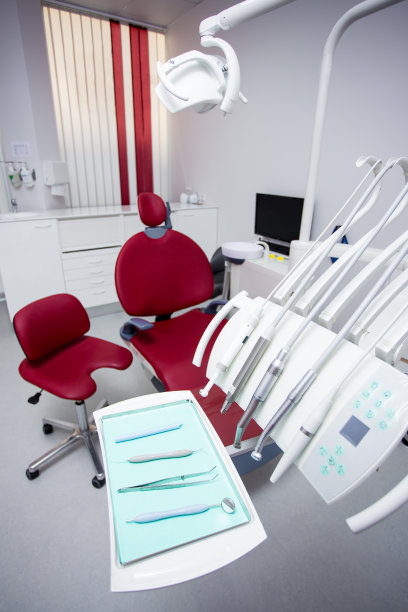Summary: Dental pain can be debilitating, often resulting from tooth decay, infection, or overcrowding. In many cases, the extraction of a tooth may be the most effective solution to alleviate pain and prevent further oral health issues. This article highlights the importance of tooth extraction by exploring four key aspects: Pain Relief, Preventing Infection Spread, Maintaining Oral Health, and Psychological Benefits. Each of these facets illustrates how timely intervention through tooth extraction can significantly improve a persons dental health and overall well-being.
1. Importance of Relieving Dental Pain

The primary reason for tooth extraction is to relieve intense dental pain. Patients often experience discomfort due to various dental issues, such as severe cavities, abscesses, or impacted wisdom teeth. These conditions can cause persistent pain that interferes with daily activities and quality of life.
Tooth extraction removes the source of pain, allowing the individual to return to normal functioning. After the procedure, most patients notice a significant reduction in pain, leading to immediate relief. This newfound comfort can profoundly affect their physical and emotional state, helping them to engage in activities that they may have avoided due to discomfort.
Furthermore, the extraction process can prevent the progression of pain associated with untreated dental problems. In many cases, waiting too long to address an issue can lead to more severe complications, prolonging suffering and raising treatment costs. Therefore, timely tooth extraction can provide a remedy that not only alleviates pain but also prevents future oral health challenges.
2. Preventing Infection Spread
Another crucial aspect of tooth extraction is its role in preventing the spread of infection. Dental infections often originate in decayed teeth and can quickly progress if left untreated. The bacteria can spread to surrounding tissues, resulting in abscesses and diseases that may affect other areas of the body, including the heart.
Tooth extraction serves as an effective barrier against the escalation of infections. By removing the infected tooth, healthcare providers can halt the bacterias progression, protecting the patients overall health. This preventative measure is vital for patients with weakened immune systems, where a simple dental infection could lead to severe repercussions.
Additionally, regular dental check-ups can identify issues necessitating extraction before they develop into serious infections. By being proactive rather than reactive, patients can avoid the suffering and health risks associated with untreated dental problems.
3. Maintaining Overall Oral Health
Tooth extraction also plays a significant role in maintaining overall oral health. In instances of overcrowding or misalignment, certain teeth may need extraction to allow for proper alignment and spacing. This is especially common in orthodontic treatments involving braces.
By facilitating proper alignment in the dental arch, extractions can improve not only aesthetics but also functional aspects of oral health. Well-aligned teeth are easier to clean and less susceptible to decay, contributing to better long-term oral hygiene and reduced costs for future dental interventions.
Moreover, extracted teeth can lead to better chewing efficiency and speech clarity. Patients experiencing difficulty in these areas due to dental misalignment can find that proper tooth extraction significantly enhances their quality of life, enabling them to chew food effectively and speak confidently.
4. Psychological Benefits of Tooth Extraction
Psychological benefits are another important aspect of tooth extraction that should be acknowledged. Living with chronic dental pain or visible dental issues can lead to anxiety and low self-esteem. Patients may avoid social situations or experience embarrassment due to their dental appearance.
Upon extraction, individuals often report feeling an overwhelming sense of relief. This newfound freedom from pain can transform their mental state. Additionally, improved dental aesthetics following tooth extraction may encourage patients to smile more openly, thus fostering positive social interactions.
Ultimately, the psychological benefits of tooth extraction translate into improved overall well-being. Patients experience a boost in confidence and an enhanced willingness to engage with others, leading to a more fulfilling social life.
Summary: In conclusion, extracting a tooth plays a vital role in relieving dental pain, preventing the spread of infections, maintaining oral health, and providing significant psychological benefits. Understanding these factors highlights the necessity of timely dental interventions, which lead to lasting improvements in a persons health and quality of life. Regular dental check-ups are essential for identifying problems before they escalate into more complex issues, making it crucial to prioritize dental health.
This article is compiled by Vickong Dental and the content is for reference only.
Vickong Dental
Vickong Dental is a large medical group established in Hong Kong in 2008 by professors from well-known medical universities in Guangdong and Hong Kong, as well as medical doctors from key national '985' universities (including Master's supervisors and senior professors). The chain of branches brings together expert dentists with PhDs and Master's degrees from Hong Kong and Mainland China, committed to providing high-quality dental treatment.
"Vickong Dental Practices the University Motto of 'Healing and Serving Society,' with a Stable Operation for Sixteen Years. It Has Been honored with Hong Kong Enterprise Leaders's Choice,' and is a Global Trusted Implant Center for the Nobel Implant System. Recommended by Hong Kong Metro Broadcast and Guangdong Television, it Serves Customers from Over Thirty Countries and Regions, Gaining the Trust and Favor of Citizens from the Guangdong-Hong Kong-Macau Greater Bay Area and Surrounding Cities.

Thousands of customers' unanimous praise
The most recognized and highly recommended dental service by customers in the Guangdong-Hong Kong-Macau Greater Bay Area
We Ensure You Receive Detailed Care and Attention Here
Hong Kong standards, Shenzhen prices, Your Trusted English-speaking dentists

Vickong Dental Medical-Grade Instrument Disinfection Process
Vickong Dental Medical-Grade Instrument Disinfection Process

Vickong Dental Chain: A Warm and Comfortable Environment for Treatment






Appointment Hours

Q&A
Why choose Vickong Dental?
Vickong Dental practices the university motto 「Medicine to Benefit Society」, with each branch bringing together highly qualified dentists with doctoral and master’s degrees from Hong Kong and the Mainland, and has maintained seventeen years of steady operation。Recipient of 「2024 Hong Kong Enterprise Leaders Brand」, 「2025 Hong Kong Enterprise Leaders Brand」, a Nobel Biocare Global Trusted Implant Center, and a brand recommended by Metro Radio Hong Kong and Guangdong TV。
To date, we have served customers from more than thirty countries and regions,earning exceptionally high word-of-mouth recognition and trusted recommendations from residents across the Guangdong-Hong Kong-Macao Greater Bay Area and surrounding cities
We have eight major branches in Zhuhai、Shenzhen,and a consultation and service assurance center in Hong Kong,so you can book a free consultation at any time for any questions,which is very reassuring.
If I do not accept the quotation after the CT scan, will I be charged??
No! As long as the actual treatment has not started, you will not be charged any fees.
Will there be any additional charges during the treatment process?
No, there won’t be any additional charges. Before treatment begins, we will clearly explain the treatment plan and its corresponding fees. Only after the patient agrees and signs the consent form will we proceed with the dental service.
Can I pay in Hong Kong dollars?
Yes. Vickong Dental accepts payment in Hong Kong dollars. The amount will be converted based on the exchange rate of the day, and the applicable rate will be clearly communicated to you in advance.
Can I reschedule my appointment at any time?
Yes. Please contact us via **WeChat** or **WhatsApp** as early as possible, providing your original appointment time and details, along with your preferred new date and time slot for rescheduling.













